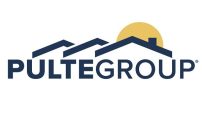Late last year, a new entrant entered the Nashville new home market. It wasn’t a large public or an Asian conglomerate-backed powerhouse. Instead, it was a smaller private from a state away in South Carolina.
While Charleston-based Crescent Homes isn’t a huge national name, in less than a decade it has become the top private in its hometown, according to BUILDER’s 2016 Local Leaders data. The builder was founded in the depth of the recession by CEO/Owner Ted Terry, a fifth-generation home builder. Prior to going out on his own and establishing Crescent Homes in 2009, Terry was the regional president for Charleston-based Brentwood Homes.
If a builder had dry powder and wanted lots, 2009 was not a bad time to get into the arena. From those humble beginnings, Terry built a private company that became a power player in its home market and has been able to compete in one of the toughest markets in the country.
“You had to get through some challenges, but I took advantage of opportunities in the market,” Terry says. “The downturn did wipe out some of the private players in the market.”
Crescent’s goal from the beginning was to include features that other builders viewed as upgrades and offer buyers the flexibility to personalize floor plans and features to suit their lifestyle.
In Charleston, Crescent is squarely in the move-up category. Its average price in 2016 was $300,000 and it hopes to see that number increase to $330,000 in 2017. It currently 14 actively selling communities in the Charleston area, not including its custom program, Flex.
In 2015, Crescent closed 250 homes, giving it a 6.9% market share. That placed No. 6 in the Charleston market overall and No. 1 among privates, according to BUILDER’s 2016 Local Leaders data. In 2016, Crescent closed 243 homes or a little over 6% of the new home market in Charleston 2016, according to the builder. That gave it the fourth most closings in the Charleston MSA in 2016 and an average sales price of $303,516.
Expansion Plans
With that success, Terry, who majored in finance and minored in real estate at the University of Georgia and then earned a Master’s Degree of Real Estate from Cornell University, began thinking about expansion.
“In Charleston with the land availability dwindling and prices on the perpetual up rise, expansion was not a question of if, it was when,” Terry says.
Terry analyzed a number of locales before deciding on Greenville, SC. and Nashville. “While analyzing these initial surrounding markets, we determined despite their close proximity (which may have provided us with an easier market entrance), they lacked stability, economic growth and employment opportunities,” he says. “To see a return on investment and to create a sustainable and long-term division we needed to expand to markets that mirrored or shared some of the driving growth factors of Charleston.”
From a distance, Nashville, which saw job growth from 2010 to 2015 exceeded 20%, according to Forbes, made a lot of sense. “The unemployment rate is one of the lowest on the country for a large metropolitan city,” says Eugene James, the Atlanta and Nashville regional director for Metrostudy. “Corporate America is expanding and folks are trying to relocate there. It’s a hub for the healthcare industry. It has well paid jobs and that’s causing people to relocate from all over the southeast.”
Terry saw an opportunity to take semi-custom home buying experience to the market.
“The same reasons people are visiting and relocating to Charleston, SC can be said for Nashville, yet it is on a much larger scale in terms of size and density,” he says. “Employment opportunity and growth, a strong higher education presence and tourism all are factors as to why we felt Nashville would serve as a wise location for expansion efforts. The Nashville market is not dominated by national home builders, which was a driving factor why we felt that as private company we could expand to the area and find success.”
But despite the lack of public competition, Terry wasn’t alone in eyeing the market, according to James. The regional director says he has fielded inquiries from a number of builders seeking to break into the market.
“There are lots of jobs and there is very little inventory for new or resale homes,” he says. “That makes it a very strong home building market.”
James says establishing a foothold in Music City is no easy task, which is why many of the builders who inquired with him never actually started homes. “Nashville has the most constrained lot supply in the country,” he says. “There are very few buildable lots on the ground.”
That lot inventory hurdle didn’t deter Terry, who says Crescent’s track record in Charleston helped him secure land. “We were able to move into the Nashville market by using the same strategy as we do in Charleston by being opportunistic and being able to act swiftly when needed and focus on relationship building. Being a private company allows us that competitive advantage of being able to make decisions quickly without having the corporate chain of command that impedes and slows down the acquisition process.”
Crescent has approximately 750 lots under control in the market and is building homes with an average price point of $450,000.
“With any new endeavor there is always a learning curve,” Terry says. “Once expansion had begun our first priority was to learn the market and develop our positioning strategy. Going into this expansion we knew we had to come into the experience being pliant, open minded, and that we had to listen and learn from those who are experts in their respected fields and industries in the area.”
Big Goals
Now that Terry has built a company that has a presence in three markets, panning for the future is a bit more complicated that it was in the early days.
Right now, Crescent has positions in three neighborhoods in Greenville, S.C., about three hours away (by car) from Charleston, but Terry admits he has a lot more work ahead. “Our primary goal in 2017 in regards to Greenville is to establish a solid land position,” he says. “We will use this time to fine tune our position, operations and construction to ensure we are creating a division that will allow for long term growth and profitability.”
In the hyper competitive Nashville market, Terry is keenly focused on expansion, concentrating on year-over-year growth and solidifying Crescent’s position as a key player in the area.
In Charleston, like other markets, Terry wants to increase market share, and he plans to cross the 400-homes-sold threshold. That is not all, though. He wants to continue to strengthen and further cultivate Crescent’s company culture, grow its corporate giving program, add new house, plans and product lines, and continue to diversify with its Design Collective, an interactive design process, and its custom Flex program.
While those individual goals are enough the keep any executive team busy, Terry’s overarching target remains the same. We want to “stay true our vision of building quality homes that people want to buy in locations where people want to live,” he says.



